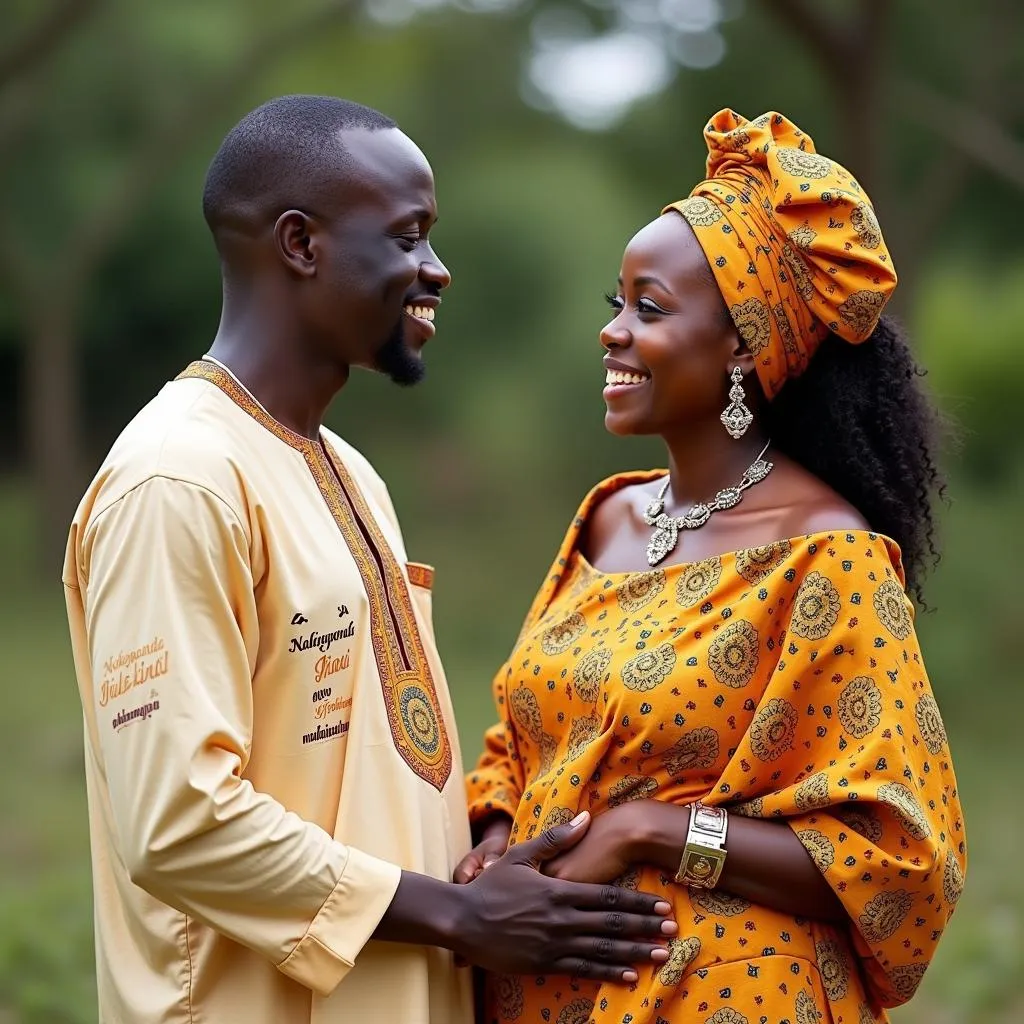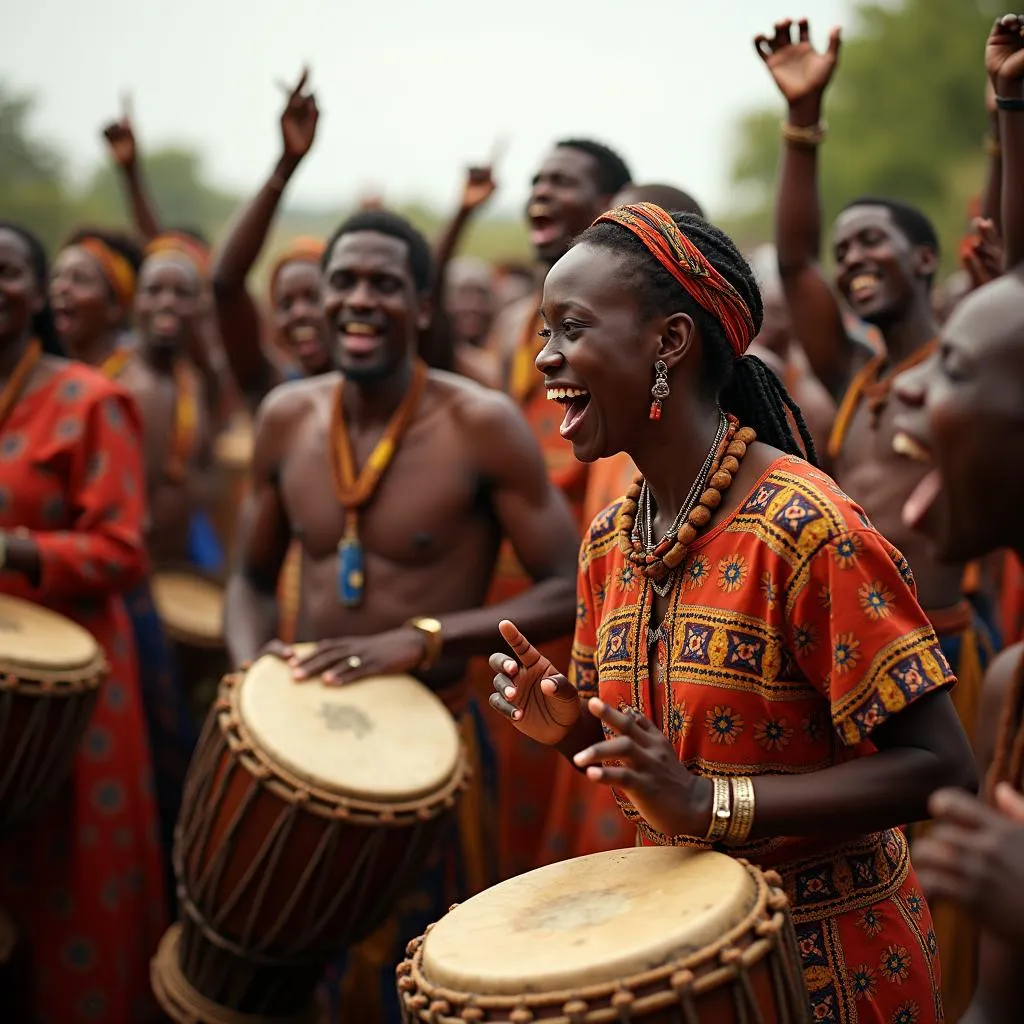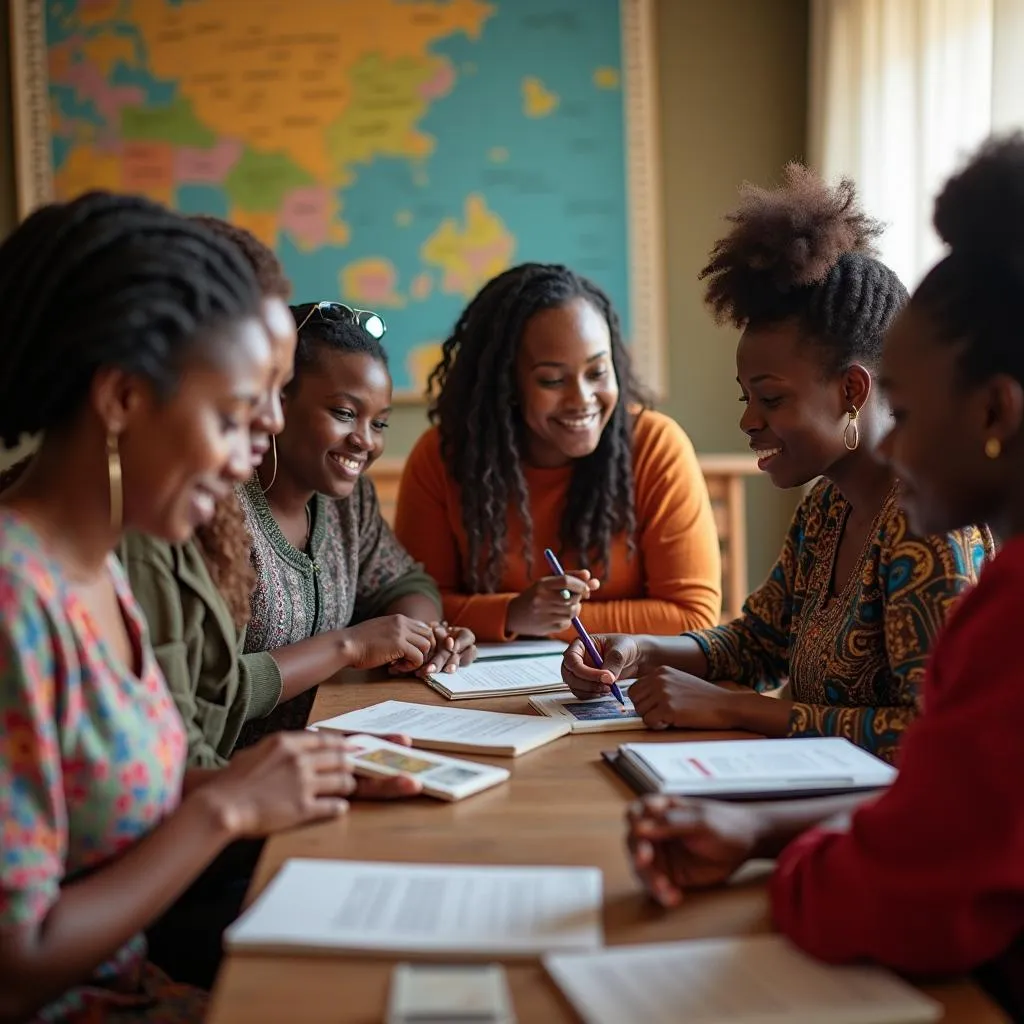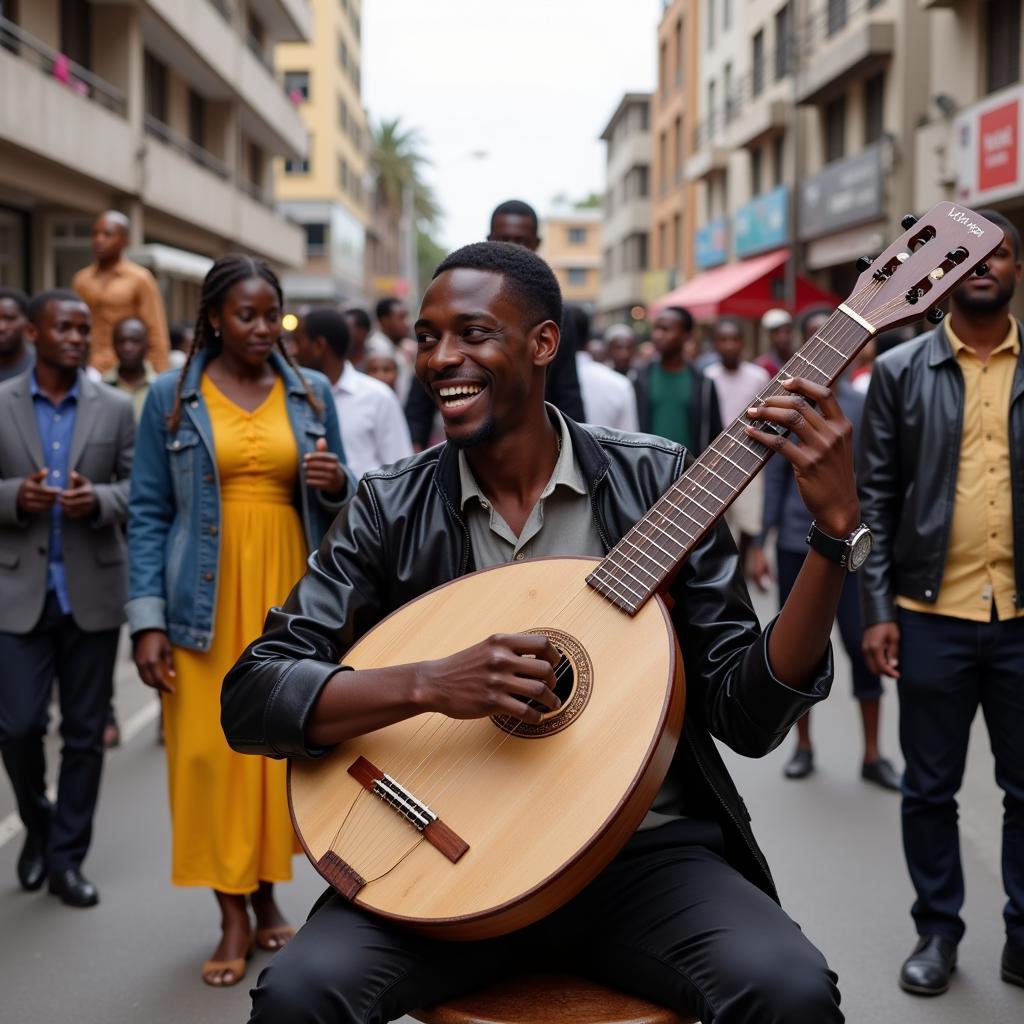How to Say “I Love You” in Different African Languages
The African continent, known for its diverse cultures and rich history, boasts a beautiful tapestry of languages. Expressing affection, particularly saying “I Love You,” takes on unique and heartwarming forms across different African cultures. While English might be a common language across the continent, delving into native languages reveals the depth and beauty of expressing love.
This article explores various ways to say “I Love You” in different African languages, offering a glimpse into the linguistic diversity and cultural richness of this fascinating continent.
Unveiling Affection: “I Love You” Across Africa
From the Swahili-speaking regions of East Africa to the Yoruba communities in West Africa, expressing love transcends mere words. It reflects cultural nuances and traditions. Let’s embark on a journey to discover how different languages and cultures across Africa convey this universal emotion.
East Africa: Whispers of Love in Swahili and Amharic
In Tanzania and Kenya, Swahili, a widely spoken language, expresses “I love you” as “Nakupenda.” This simple yet powerful phrase encapsulates the depth of affection. Meanwhile, in Ethiopia, Amharic, the official language, expresses love with “Afekrishalehu.”
 Couple Saying I Love You
Couple Saying I Love You
West Africa: Declarations of Love in Yoruba and Igbo
Traveling West, we encounter the vibrant Yoruba language spoken in Nigeria, Benin, and Togo. “Mo nifẹẹ rẹ” beautifully expresses “I love you” in Yoruba, reflecting the melodic nature of the language. Further east, in Nigeria, the Igbo language uses “A hụrụ m gị n’anya” to convey love, emphasizing the strong sense of affection and care.
Southern Africa: Love Songs in Zulu and Xhosa
Venturing south, we arrive in South Africa, home to eleven official languages. Zulu, the most spoken language, uses “Ngiyakuthanda” to express love, a phrase that resonates with warmth and sincerity. Similarly, Xhosa, another prominent language, uses “Ndiyakuthanda,” echoing the Zulu sentiment with subtle phonetic variations.
North Africa: Love Echoes in Arabic and Berber
Journeying north to the Arabic-speaking regions, “Ana uHibbuka” (أنا أحبك) stands as the most common expression of love. In Morocco, Algeria, and other areas, Berber languages, with their ancient roots, add another layer of linguistic diversity. For instance, in the Berber language, Tamazight, ” Lakh tirikh” conveys “I love you,” showcasing the linguistic richness of the region.
Beyond Words: Cultural Expressions of Love in Africa
While spoken languages offer a direct way to express love, African cultures are rich in non-verbal expressions. Dance, music, and gift-giving often convey deep affection and care.
 Celebration with Drums and Dance
Celebration with Drums and Dance
For instance, in many African cultures, presenting a loved one with hand-crafted gifts symbolizes love and appreciation. Similarly, sharing meals and engaging in communal activities signify the importance of togetherness and love within families and communities.
The Power of Language in Expressing Love
Learning to say “I love you” in different African languages not only allows for a deeper understanding of these cultures but also opens doors for connection and communication. As we’ve explored, Africa’s linguistic diversity beautifully reflects the continent’s cultural richness and the multifaceted ways love is expressed.
From the Swahili “Nakupenda” to the Yoruba “Mo nifẹẹ rẹ,” each phrase encapsulates a unique cultural understanding of love. By embracing this linguistic tapestry, we gain a richer appreciation for the depth and beauty of human connection across cultures.
FAQs: Expressing Love in African Languages
1. What is the most common way to say “I love you” in Africa?
While there’s no single “most common” way due to the diversity of languages, “Nakupenda” in Swahili is widely understood in East Africa. However, using a specific language relevant to the person’s culture holds deeper meaning.
2. Are there different dialects within these African languages?
Yes, many African languages have regional dialects with variations in pronunciation and vocabulary. It’s always respectful to be mindful of these nuances.
3. Beyond “I love you,” what are some other affectionate phrases in African languages?
Many endearing terms express affection, like “my love,” “my heart,” or compliments about beauty or character, varying significantly across languages.
4. Is it appropriate to use these phrases if I’m not fluent in the language?
While learning a full phrase demonstrates effort and respect, even knowing a few words can be appreciated. It’s essential to be respectful and genuine in your approach.
5. Where can I learn more about African languages and cultures?
Numerous online resources, cultural centers, and language learning apps offer insights into African languages and cultural nuances.
 Language Exchange and Cultural Immersion
Language Exchange and Cultural Immersion
Need Help?
For inquiries or assistance, feel free to reach us!
- Phone: +255768904061
- Email: [email protected]
- Visit Us: Mbarali DC Mawindi, Kangaga, Tanzania
Our customer support team is available 24/7 to help.
